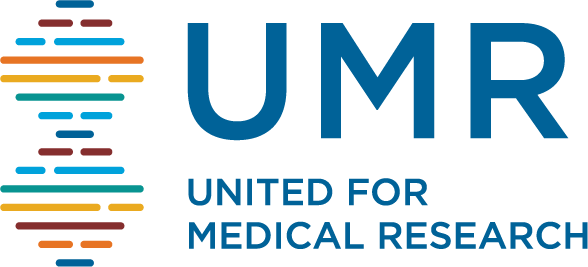February 26, 2015
WASHINGTON, D.C. – February 26, 2015 – Following more than a decade of flat funding for lifesaving biomedical research, a new report released today on Capitol Hill provides alternative approaches to ensuring sustained investment in medical discovery and economic growth within the biomedical sector.
The report, titled Healthy Funding: Ensuring a Growing and Predictable Budget for the National Institutes of Health, and produced by United for Medical Research (UMR) and The Information Technology and Innovation Foundation (ITIF), assesses the current state of government investment in biomedical research generally and the NIH specifically. It also compares the U.S. against other nations’ investments in biomedical innovation, and presents a series of options for greater and more predictable funding for biomedical research and development in the U.S.
The report suggests that Congress consider several options in addition to current funding mechanisms to ensure sufficient and sustained U.S. investment in biomedical research, including:
- Adjusting discretionary spending caps to favor NIH funding increases;
- Implementing multi-year budgeting and advance appropriations for NIH programs to increase year-to-year stability and predictability; and
- Examining changes in mandatory programs, trust funds and dedicated funding streams to increase both funding amounts and stability for biomedical research.
The report further notes that while U.S. investment has declined, nations such as China, the United Kingdom, Singapore and Australia have increased funding based on comprehensive strategies to boost biomedical innovation. This has eroded America’s international competitiveness in biomedical research and hurt American industries.
“Science funded by NIH reduces government spending on health care, increases future productivity, and saves lives by delivering cures for some of society’s deadliest diseases,” says Robert Atkinson, President of ITIF and co-author of the report. “The challenge for the 114th Congress is to find innovative means to provide the agency with sustainable and predictable funding to continue that mission. The options contained in this report provide a step forward for that conversation.”
“The federal government plays an essential role in funding biomedical research, arming our brightest researchers with the necessary resources to embark on critical research, fuel growth in our economy and ensure that new treatments reach patients as fast as possible,” said Beth Felder, Director, Federal Affairs, Johns Hopkins University, member of United for Medical Research. “Unfortunately, heated debates over the federal budget have led to flat funding at a time when greater investment is needed to further the medical breakthroughs of the last two decades.”
NIH funding has fueled the development of novel drugs including gene therapies for cancer and antiviral drugs to combat HIV/AIDS, and has helped create multiple industries such as genetic engineering and bioinformatics. Despite the huge economic and societal benefits, when measured against the rising cost of conducting medical research, Congress has reduced NIH funding by 22 percent between 2003 and 2013.
“There are a number of reforms that are necessary to stabilize the NIH’s funding for researchers, companies and universities,” adds Joe Kennedy, a Senior Fellow at ITIF and co-author of the report. “Given the importance of the NIH’s mission and the tremendous value it has produced, we hope this report serves as a roadmap for boosting biomedical research, increasing economic growth and ultimately saving lives.”
About the Information Technology and Innovation Foundation
The Information Technology and Innovation Foundation (ITIF) is a non-profit, non-partisan think tank whose mission is to formulate and promote public policies to advance technological innovation and productivity internationally, in Washington, and in the states. Recognizing the vital role of technology in ensuring prosperity, ITIF focuses on innovation, productivity, and digital economy issues.
About United for Medical Research
United for Medical Research represents leading research institutions, patient and health advocates and private industry, joined together to seek steady increases in federal funding for the National Institutes of Health. The coalition groups consist of the American Association for Cancer Research, American Cancer Society Cancer Action Network, American Diabetes Association, American Heart Association, Association of American Universities, Association of Public and Land Grant Universities, BD, Biotechnology Industry Organization, Boston University, Corning, FasterCures, Harvard University, Johns Hopkins University, Massachusetts Institute of Technology, Melanoma Research Alliance, Northwestern University, Pancreatic Cancer Action Network, PhRMA, Research!America, Stanford University, The Endocrine Society, Thermo Fisher Scientific, University of Pennsylvania, University of Southern California, Vanderbilt University, and Washington University in St. Louis. Follow us on Twitter @UMR4NIH.
###

